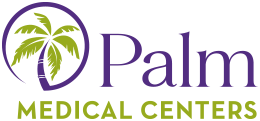Pediatrics - Fevers
Introduction
Fever is a symptom of illness, and it is the body’s way of fighting off infection. While parents often fear fever in their children, it is a healthy response to illness and typically not harmful or life-threatening, unless it is extremely high, as in over 107° F (measured rectally). Most fevers are caused by common infections that are not serious.
Causes
The most common causes of fever in children include viral infections, bacterial infections and immunizations. Toddlers and young children are especially prone to fevers. In fact, many children this age experience 7 to 1 viral infections a year. A common thought among parents is that teething may cause fever, but it does not.Symptoms
Signs and symptoms of fever may vary according to your child’s age. If your child is too young to speak or verbalize the way he feels physically, the following symptoms may indicate a fever:
- Irritable or fussy
- Quiet or lethargic
- Feel warm or hot
- Decreased appetite
- Changes in sleeping habits
- Rapid breathing
If your child is old enough to express how she feels, she may complain of:
- Body aches
- Headache
- Chills
- Not being able to sleep or needing to sleep more
- Decreased appetite
Diagnosis
After examining your child, the doctor may order certain tests to determine - or rule out - the cause of fever. The most common tests are urinalysis and blood tests to check for bacterial infections and/or dehydration. A throat culture can diagnose common sore throat conditions such as strep throat. A chest x-ray can help diagnose certain heart, lung and chest conditions. If the doctor suspects meningitis, she will order a lumbar puncture (spinal tap).
Treatment
At-Home Treatment
Prevention
To prevent the viruses and bacteria that cause fever, teach your child proper hygiene:
- Make sure your child washes his hands frequently, especially after going to the bathroom and before eating.
- Teach your child to cough or sneeze into a tissue or her elbow and to use a tissue when wiping her nose.
- Tell your child not to share food, cups or utensils with other children.
- Use disposable antibacterial wipes and hand sanitizer in public places where soap and water are not available.
Am I at Risk
Young children are most susceptible to fever, especially those in day care or preschool. Coming in contact with another child who has a viral or bacterial infection is the main risk factor for fever.
Complications
Children with high or persistent fevers may experience complications such as:
- Severe dehydration
- Hallucinations
- Seizures

Copyright © - iHealthSpot Interactive - www.iHealthSpot.com
This information is intended for educational and informational purposes only. It should not be used in place of an individual consultation or examination or replace the advice of your health care professional and should not be relied upon to determine diagnosis or course of treatment.
The iHealthSpot patient education library was written collaboratively by the iHealthSpot editorial team which includes Senior Medical Authors Dr. Mary Car-Blanchard, OTD/OTR/L and Valerie K. Clark, and the following editorial advisors: Steve Meadows, MD, Ernie F. Soto, DDS, Ronald J. Glatzer, MD, Jonathan Rosenberg, MD, Christopher M. Nolte, MD, David Applebaum, MD, Jonathan M. Tarrash, MD, and Paula Soto, RN/BSN. This content complies with the HONcode standard for trustworthy health information. The library commenced development on September 1, 2005 with the latest update/addition on February 16, 2022. For information on iHealthSpot’s other services including medical website design, visit www.iHealthSpot.com.






